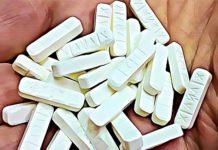Different forms of drug addiction treatment are necessary because addiction effects so many areas of a person’s daily life. Depending on the severity of the addiction, one may need to seek out more than one form of drug treatment. For many, a combination of individual and group counseling is highly effective. Drug treatment strategies that address both a person’s physical condition and any associated co-occurring health, mental and social issues are highly effective. A combination of drug rehab, cognitive-behavioral therapy, psychosocial rehabilitation and other forms of medication will provide the ultimate cure for those who suffer from addiction.
The treatment of drug addiction involves the understanding of the person’s behavior, emotional makeup and other related issues. A trained psychologist, psychiatrist, clinical social worker, behavioral therapist or family therapist works with an addict to help them understand their behavior and how to change it. Once an addict has been treated effectively in a drug rehab, they will usually have to undergo several phases of intensive counseling to learn new behaviors and ways to deal with their addiction. It is important for an addict to be able to trust themselves and to feel comfortable opening up to others about their addiction. This will also help them to heal emotionally, mentally and socially.
There are many drug addiction treatment options available today. These include various kinds of outpatient programs, residential rehab programs, inpatient programs and outpatient treatment centers. Most people with drug addictions do well in a residential treatment center, as this is where their entire lives are changed. These facilities help to give an addict a safe place to recover and to rebuild their lives after years of abuse. They also provide the addict with a strong support system and medical care for any addiction-related problems that may arise.











